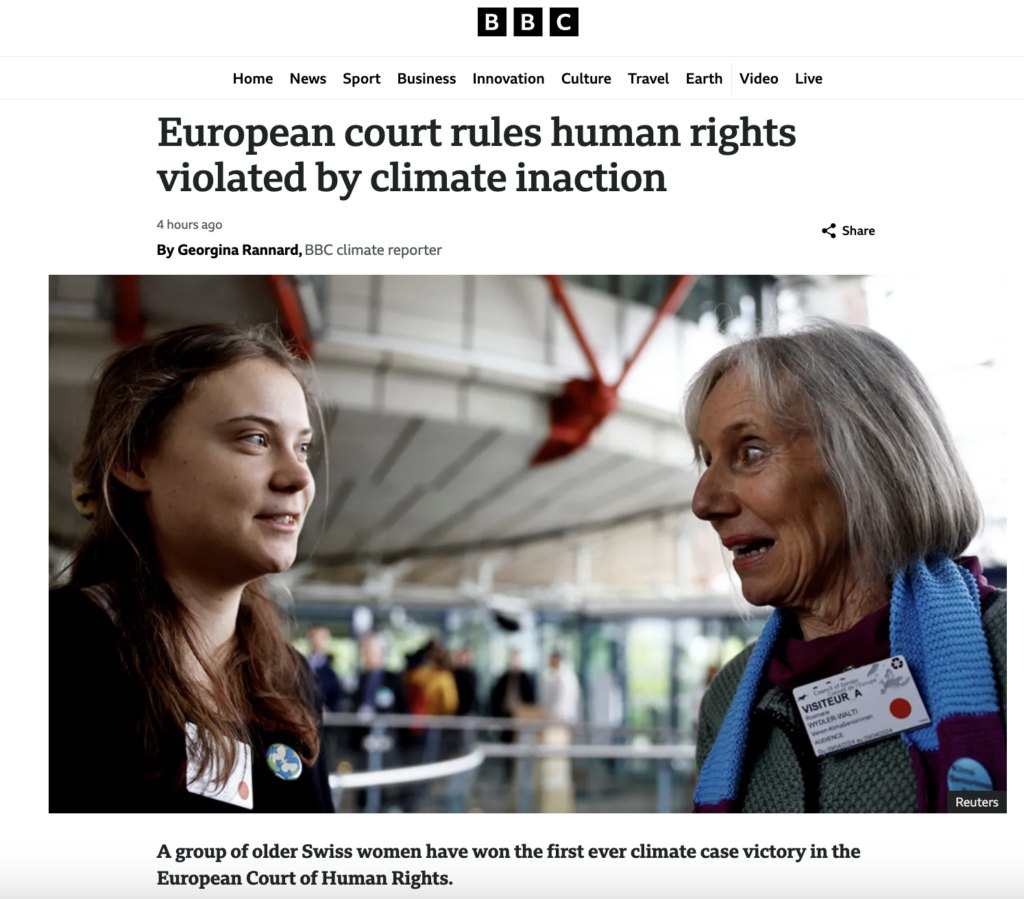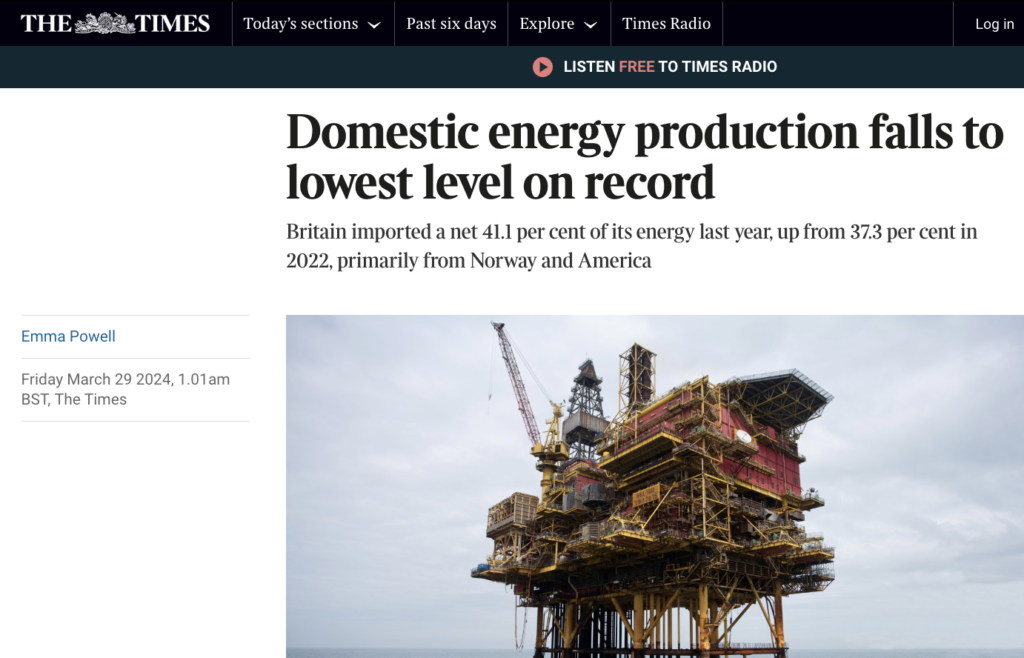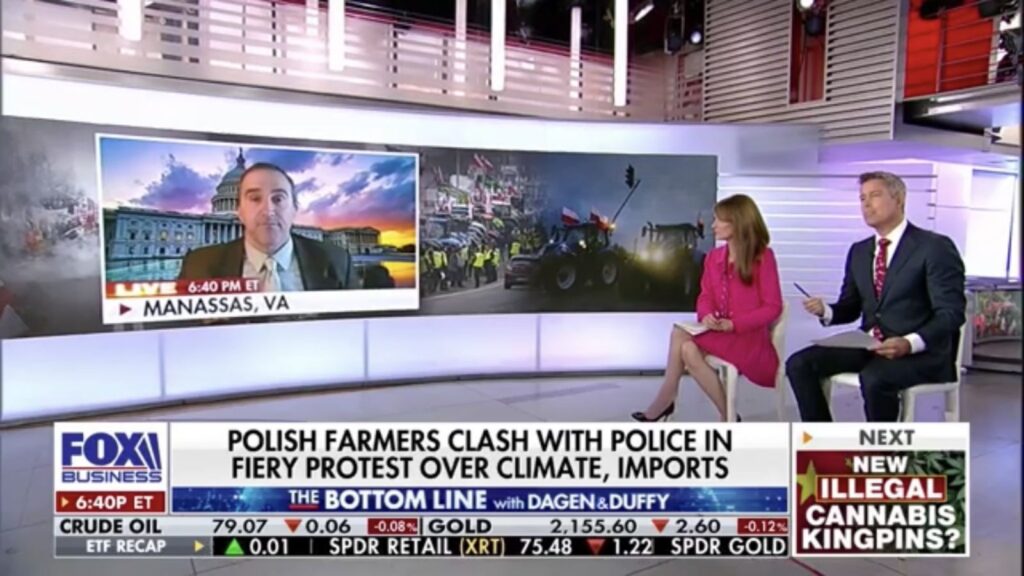The Green Road to Serfdom: ‘Voters will rebel against ‘net zero’ when the costs hit’
https://stephenheins.substack.com/p/the-green-road-to-serfdom-by-andrew By ANDREW STUTTAFORD Voters will rebel against ‘net zero’ when the costs hit Deciding who has been the worst British prime minister of the 21st century (so far) is tough, but Theresa May (2016–19) strengthened her strong claim to this title shortly ahead of her ignominious departure from office. Desperate to secure a “legacy,” she […]
Net Zero Leaves U.K. Paying Five Times More for Electricity Than China
https://dailysceptic.org/2024/04/09/net-zero-leaves-u-k-paying-five-times-more-for-electricity-than-china/ BY DR JOHN FERNLEY The United Nations established the Intergovernmental Panel for Climate Change in 1988 and in 1995 the first climate change Conference of Parties (COP1) was held in Berlin. There has been a COP meeting every year since then, apart from 2020 when covid intervened. Last year COP28 was held in the […]
Euro court rules ‘climate action’ is a human right – ‘Climate inaction’ violated human rights

The European Court of Human Rights, in a landmark ruling that could have major implications across 48 European countries, rulng for the 2,000 members of Switzerland’s Senior Women for Climate Protection (average age: 74), the ECHR held the country’s “fail[ure] to comply with its duties” to meet its emissions reductions targets and otherwise protect its citizens from the ravages of the climate crisis. The ruling, which cannot be appealed, is legally binding on all 46 member states of the Council of Europe.
Net Zero is working! Green Britain returning to its pre-industrial bliss?! UK domestic energy production falls to lowest level on record! Imported a net 41.1% of its energy in 2023

Green Britain is returning to its pre-industrial bliss 🥺 https://t.co/WC06DVaU8k — Net Zero Watch (@NetZeroWatch) March 29, 2024 https://www.thetimes.co.uk/article/domestic-energy-production-falls-to-lowest-level-on-record-r2vpgfv2t By Emma Powell – UK Telegraph The amount of energy produced domestically in Britain has fallen to its lowest level on record, increasing the country’s dependency on imports from Norway and the United States. North […]
Farmers on Tractors halt EU Green New Deal! AP: EU fails to advance major climate bill – Plan to ‘fight climate change was indefinitely postponed’ due to ‘farmers’ protests sweeping the continent’
https://apnews.com/article/eu-climate-nature-protection-farmers-protests-7b222f346d4898e32766b230da781385 A major European nature protection plan stumbles at the final hurdle. ‘How could we give that up?’ BY RAF CASERT Updated 12:54 PM EDT, March 25, 2024 BRUSSELS (AP) — A major European Union plan to better protect nature in the 27-nation bloc and fight climate change was indefinitely postponed Monday, underscoring how farmers’ protests sweeping the […]
Sobering Up? EU May Scrap Its Plans To Ban Internal Combustion Engines By 2035
https://notrickszone.com/2024/03/10/sobering-up-eu-may-scrap-its-plans-to-ban-internal-combustion-engines-by-2035/ By P Gosselin After vote in Brussels last Monday evening, a majority of the European Parliament favored a Commission proposal that would no longer automatically classify electric cars as climate-neutral vehicles. In the proposal, the CO2 emissions of electric cars would depend on the electricity mix used to charge the car, meaning electric cars […]
Watch: Morano on Fox on John Kerry’s last day as ‘climate czar’: ‘The problem is, no one quite knows where he’s going, and he may actually end up doing more damage at his next gig’

Today was John Kerry's last day as "climate czar" but @ClimateDepot warns BEWARE: "The problem is, no one quite knows where he's going, and he may actually end up doing more damage at his next gig." @SeanDuffyWI @dagenmcdowell pic.twitter.com/ZbORn6Csfv — The Bottom Line (@BottomLineFBN) March 7, 2024 Fox Business – The Bottom Line – Broadcast […]
Watch: Morano on Rebel TV: ‘Farmers aren’t taking it anymore’ – Update on EU farmers’ protest
Rebel TV – The Ezra Levant Show – Broadcast Feb 29, 2024 ‘Farmers aren’t taking it anymore’: Climate Depot founder gives update on EU farmers’ protest ‘Europeans probably wake up every day and thank God that Justin Trudeau isn’t their leader, because right now they would be declared domestic terrorists under a first-ever invoked Emergencies […]
Europe’s Consensus On Climate Is Crumbling
Europe’s Consensus On Climate Is Crumbling BY WOLFGANG MÜNCHAU At stake in the European elections in June this year will be everything that defines the modern EU: a large volume of net zero legislation, a values-based foreign policy, and ever-more intrusive business regulation. Polls suggest the centrist majority that has supported these policies is growing slimmer. […]
Rupert Darwall: Net Zero’s days are numbered
Via Net Zero Watch: https://mailchi.mp/298bb2d0191b/apple-pulls-the-plug-kills-its-electric-car-201204?e=0b1369f9f8 Rupert Darwall: Net Zero’s days are numbered The Spectator, 23 February 2024 If a week is a long time in politics, then 2023 belongs to a different age in the politics of Net Zero. Less than eleven months ago, the government was saying that ‘Net Zero is the growth opportunity of […]
